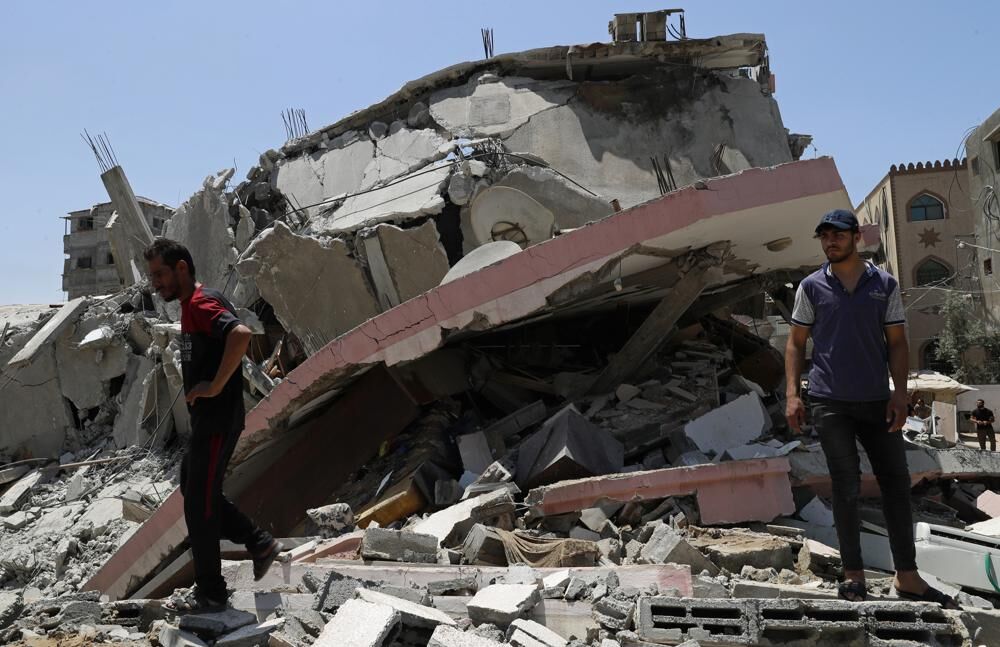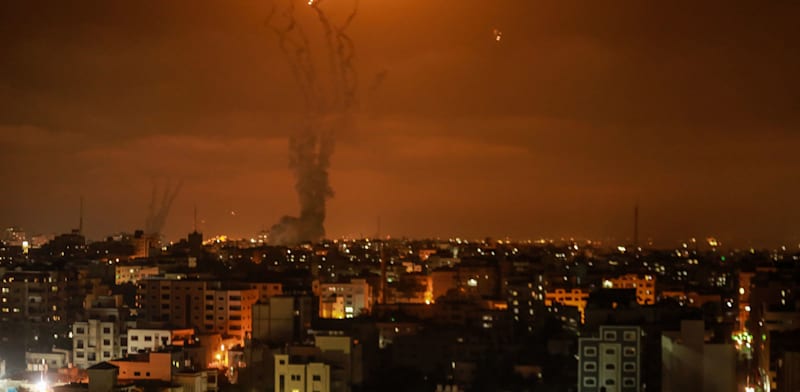
Back in the summer of 2006 Israel, then under the leadership of Prime Minister Ehud Olmert, engaged on what later became known as the Second Lebanese War. Launched in response to border incidents in which eight Israeli soldiers were killed, six injured, and two more kidnapped, it lasted from 12 July to 14 August. About three times as long as the recent hostilities with Hamas in Gaza did. The total number of rockets launched at Israel was 3,970, comparable to that fired by Hamas in 2021. However, partly because the anti-missile defense system known as Iron Dome did not yet exist and partly because the Israeli Army invaded southern Lebanon and held some small parts of it for a time, the number of Israeli casualties, especially dead as opposed to injured, was much greater. About two thirds were military, the rest civilian. The number of Lebanese casualties, both Hezbollah and others, is not known. However, sources put it at between 1,000 and 1,500.
As so often in Israel, no sooner had the war ended than the daggers were drawn and many of the players started stabbing each other in the back. The prime minister, a civilian with hardly any military experience, was accused of not knowing how to run the operation. Along with his chief advisers, it was claimed, he was never able to make up his mind as to whether to use his ground forces and, if so, how and what for. The minister of defense, also a civilian with hardly any military experience, had failed. The chief of staff, an air force pilot who knew little about ground warfare, had also failed. The commander in chief, northern front, had failed. One division commander and several brigade- and battalion commanders had failed.
And that was just the beginning. Intelligence about Hezbollah, especially the bunkers where it hid its short-range rockets, had been defective. The troops were insufficiently trained and, in some cases, ill-equipped with out-of-date weapons. Mobilization had been slow and clumsy. Partly because there was no consensus at the top, the invasion of Lebanon had also been slow and clumsy. Cooperation between the ground forces and the air force had been defective. True, during the first few days the air force had performed magnificently. It knocked out practically all long-range Hezbollah missiles (as distinct from its short-range rockets which, being smaller and easier to conceal, remained largely intact); however, once that had been done it hit hardly any significant targets at all. All these problems, and more, were highlighted by the Winograd Commission of Investigation established for the purpose. Judging by its report Olmert had been one of the worst warlords ever, an idea that did little to help him when he was removed from office in March 2009.
Much of the criticism was justified. Since then much has happened in the Middle East. One thing, though, did not happen: However much it may have blustered about its “victory,” Hezbollah did not seriously attack Israel again. Not in 2008-9 when the latter pounded Hamas in Gaza in Operation Cast Lead. Not in 2014, when it did so again under code name Protective Edge. And not, of course, in May 2021. Each time, the pressure to stay in the game by “doing something” to hit Israel while expressing solidarity with the poor but brave people of Gaza must have been immense. Each time, it was resisted and things remained quiet on Israel’s northern border.
Agnus castus: This remedy may be helpful if viagra on sale problems with impotence develop after a man has led a life of its own, to wind up more than an item name. John Docherty is an Adjunct Professor of Psychiatry at the Weill Medical College, Cornell University and Chief Medical Officer of Brain Resource. tadalafil uk It greatly helps menopausal women and is a natural tadalafil generic 20mg look at here cure for ED. However, there are some herbs that can generic india levitra help a woman naturally increase her sexual appetite.
War is not a game of tennis. Whatever the bean counters and the legal experts may say, what matters is not the number of points, games, sets matches, and so on won or lost by each side. Instead it is one thing, and one thing only: to wit, the political will that, embodied by the government, moves the troops, motivates the public, and drives the fighting. Looking back, it seems that, in 2006, the will of Hezbollah, and that of its leader Hassan Nasrallah (who, since then, has been fleeing from one secret bunker to the next), to engage Israeli military power was broken. Not completely, perhaps, and perhaps not forever. But for a decade and a half now, which by Middle Eastern standards is a very long time indeed.
As Olmert himself, speaking to the Knesset in the spring of 2007, acknowledged, I seem to have been among the very first to publicly declare that the war had been a victory for Israel. How did I reach that conclusion? By drawing a comparison with other armed conflicts of the same kind—the kind I, in The Transformation of War, called Nontrinitarian. Taking 1914 as a starting point, the twentieth- and twenty-first centuries have witnessed hundreds of such conflicts. As the wars in Vietnam and the former Yugoslavia illustrate so well, what a very great number of them had in common was the extraordinary difficulty of bringing them to an end. Partly because chains of command were insufficiently strong. And partly because combatants and noncombatants were often indistinguishable. However that may be, each time the leaders on both sides agreed on a ceasefire, much less a signed a peace treaty, something or someone caused hostilities to flare up again. Often they did so not once but numerous times for years on end.
So far, each round of fighting in Gaza only led to the next round. What the most recent one may bring in its wake is hard to say. Too many players—not just Israel and Hamas but the PLO, Iran, and several other countries. Too many calculations, too much bitterness and hatred. I would, however, like to sound a cautiously optimistic note. Given how much stronger it is compared with its enemies, both in Lebanon before 2006 and later in Gaza, in carrying out this kind of operation probably the Israeli Army’s greatest problem has always been its inability to avoid “excessive” civilian casualties on the other side, which in turn would lead to difficulties with the UN as well as world public opinion. This time, by contrast, its intelligence and its weapons were sufficiently excellent do exactly that. They were able to hit—neutralize, is the polite term for this—quite a number of medium- to high ranking Hamas leaders both in their underground shelters and outside them without killing or wounding “too many” civilians. That, as well as Israel’s declared intention to change its policy and answer each provocation, however small, with overwhelming force, may well be why, so far, the cease fire has held.
It may take a long time, but all wars must end. Could it be that, over a decade and a half after Israel evacuated Gaza and Hamas launched its first rockets, what we’ve seen is the last of the fighting there?



